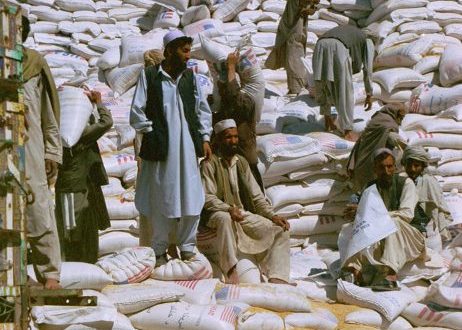KABUL — The abrupt decision by the Trump administration to slash billions of dollars in aid to Afghanistan has sent shockwaves through the war-torn nation, leaving a gaping void that China appears eager to fill. With the Taliban struggling to stabilize the economy and millions facing acute humanitarian crises, the question looms: Can China replace the United States as Afghanistan’s lifeline?
Since the U.S. withdrawal in 2021, American aid has been a critical lifeline for Afghanistan, funneling $21 billion into health, education, agriculture, and food security. But now, with President Trump labeling USAID as “radical lunatics” and Elon Musk calling it a “criminal organization,” that lifeline has been severed. The immediate consequences are dire: Afghan government employees face unpaid salaries, food prices are soaring, and the national currency has plummeted by 14 Afghanis against foreign currencies.
The Taliban, despite their rhetoric of self-reliance, have long depended on foreign aid to prop up the economy. With U.S. assistance suspended, the regime is reportedly increasing religious taxes like Zakat and Usher, further burdening a population already on the brink. The United Nations estimates that nearly half of Afghanistan’s 48 million people will need humanitarian assistance this year, with state hospitals and women’s and children’s services likely to bear the brunt of the cuts.
Enter China.
Beijing has been steadily expanding its footprint in Afghanistan since the Taliban’s return to power. In March 2022, China became the first country to formally accept a Taliban ambassador, signaling its willingness to engage with the regime. By August 2023, the Taliban endorsed China’s Belt and Road Initiative (BRI), a trillion-dollar global infrastructure project. Months later, China announced tariff exemptions for Afghan goods, further cementing its economic ties with Kabul.
China’s interests in Afghanistan are multifaceted. The country is rich in untapped mineral resources, including lithium, copper, and rare earth metals—critical for China’s tech and green energy industries. The Taliban have granted Beijing unprecedented access to these resources, offering lucrative opportunities for Chinese mining investments.
But China’s ambitions extend beyond economics. With U.S.-funded media outlets and educational institutions facing collapse, Beijing sees an opportunity to expand its soft power. China has a history of investing in foreign media to shape public discourse, particularly in regions where it has significant investments under the BRI. In Afghanistan, where pro-democracy media outlets are already struggling, Chinese influence could reshape the narrative, curbing criticism of the Taliban and promoting Beijing’s geopolitical agenda.
Education is another potential battleground. Institutions once supported by U.S. aid may soon turn to China for funding, giving Beijing leverage over Afghanistan’s education policies. This aligns with China’s broader strategy of challenging Western norms, including the universality of human rights, and promoting its own model of governance.
However, China’s growing presence in Afghanistan is not without risks. The country remains a hotbed of extremism, with groups like the Islamic State-Khorasan posing a direct threat to Chinese interests. Attacks on Chinese nationals in Afghanistan and neighboring Tajikistan have raised security concerns, prompting Beijing to tread carefully.
For the Taliban, China’s support offers a lifeline at a time of economic and political isolation. But it also raises questions about the regime’s ability to maintain its independence. As Beijing tightens its grip on Afghanistan’s resources and institutions, the Taliban may find themselves trading one form of dependence for another.
For the United States, the withdrawal of aid represents more than just a humanitarian crisis—it’s a strategic setback. By ceding ground to China, Washington risks losing its influence in a region that has long been a focal point of global power struggles.
 Afghanistan Times
Afghanistan Times




